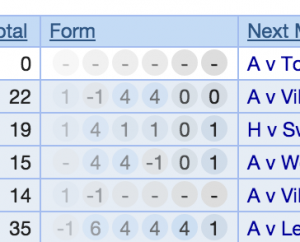I try to stick to “default is better than configuration”. But there’s some stuff I absolutely must have on a Mac to be useful.
- Launcher (Alfred)
- App Switcher (Witch) set to nonmiminized windows only.
- A way to send tasks to rememberthemilk.com from Alfred
- bunnylol plugin for Alfred (internal to Facebook)
- Set Desktop to “Sort By Kind”.
- solarized theme for iTerm2
- Make left Alt work as +Esc in iTerm2
- atom with vim-mode and ex-mode.
- MacPorts installing gpg for passwords, apache2 and MySQL for webdev.


